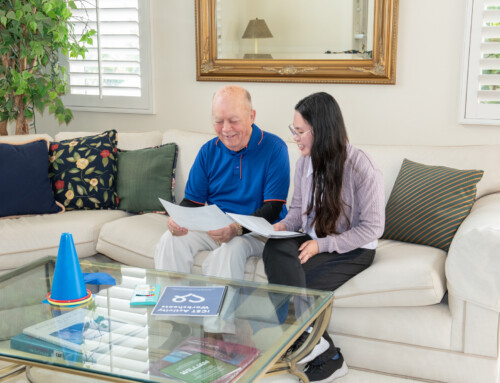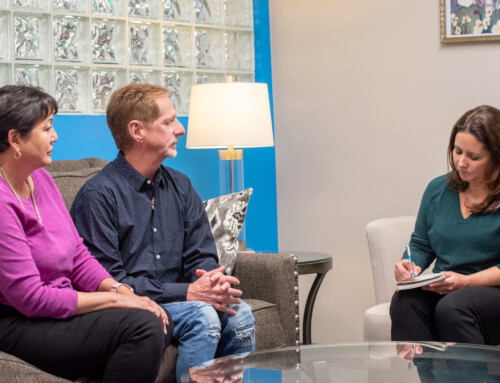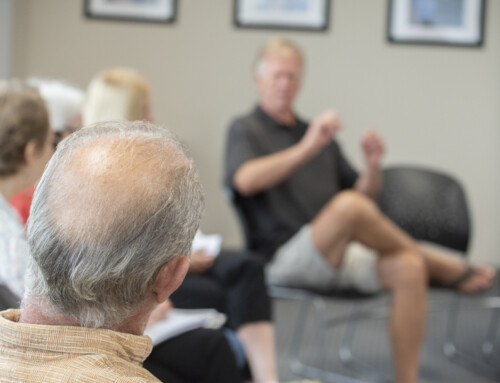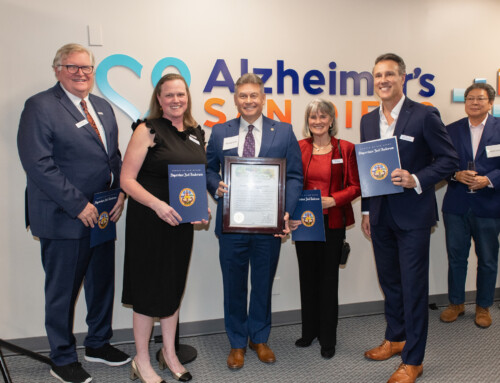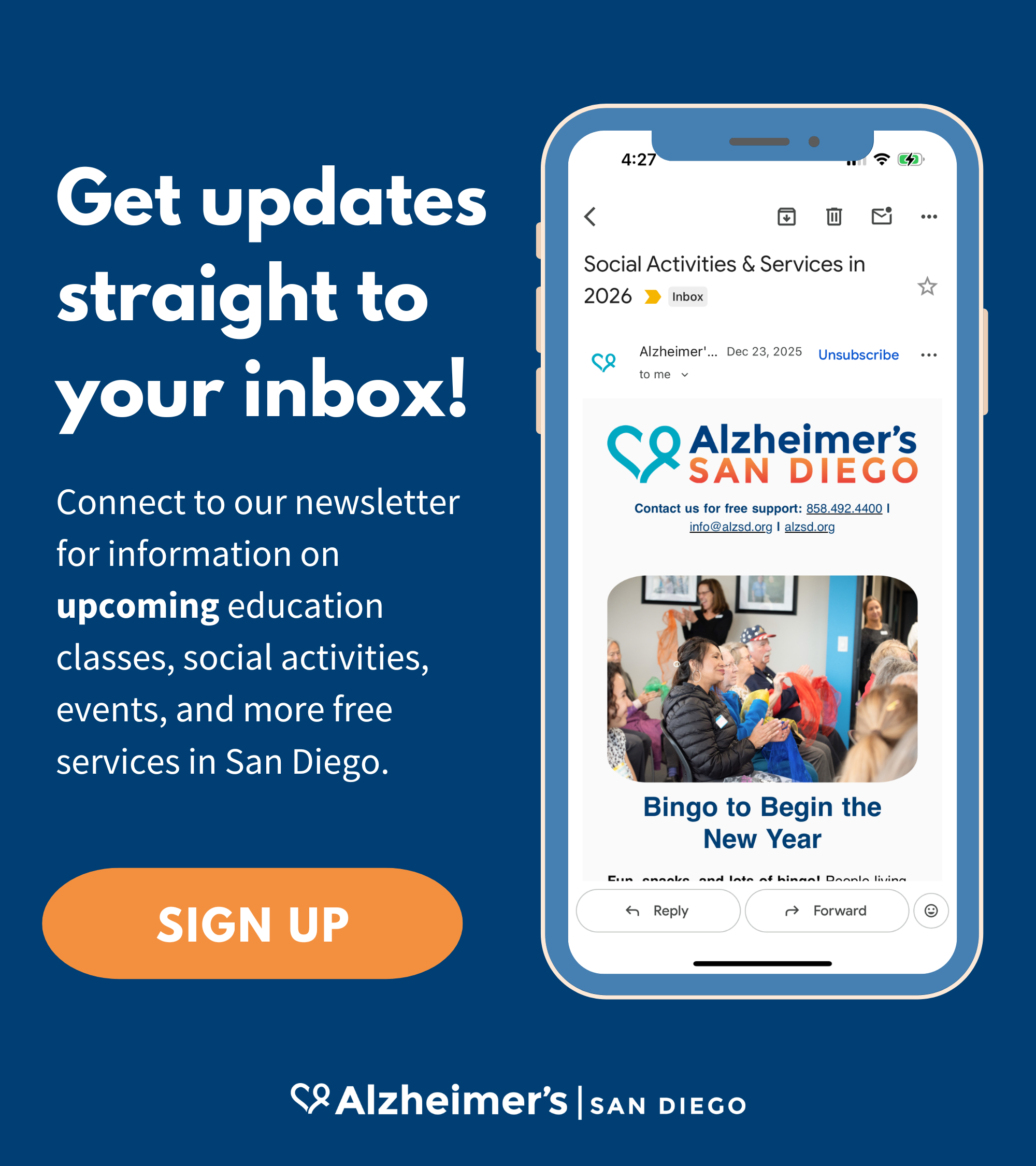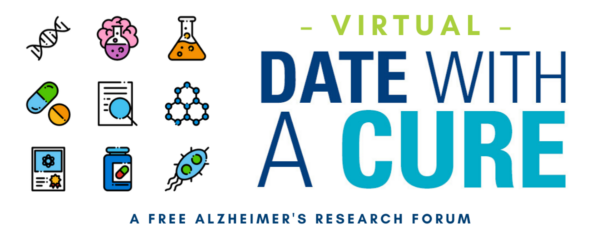
Date with a Cure 2025 was held on June 10th and the research forum provided eye-opening insight into the latest research and advancements in Alzheimer’s disease and related dementia treatment. We appreciate our wonderful moderator, Marcella Lee from CBS 8, and the researchers who offered their expertise and answered the public’s questions: Dr. Paul Aisen, Dr. James Brewer, Dr. Paulette Cazares, Dr. Jerold Chun, Dr. Douglas Galasko, Dr. Hector M. González, Dr. Doris Molina-Henry and Dr. Sherry Soefje.
Key Takeaways from the Researchers
- Two drugs currently on the market for early-stage memory loss
- Lecanemab (Leqembi) and Donanemab (Kisunla)
- These medications are scientifically proven to slow disease progression by 30%.
- New research and trials are building upon these two medications and there are exciting prospects for the future.
- Potential federal budget impacts on Alzheimer’s research
- Proposed federal budget changes could decrease the National Institute on Aging’s budget by 40%, which funds most of the Alzheimer’s research in the United States.
- These proposed changes would also reduce the success rate of grants submitted from about 25% to 3.7% which would devastate the scientific community.
- The Senate Appropriations Committee meeting on the morning of this forum showed resounding resistance to these proposed cuts.
- There is no compelling evidence that suggests that Dale Bredesen and Daniel Amen’s supplements/programs work.
- They claim they can prevent, reverse, or cure Alzheimer’s disease with their programs/supplements.
- Unfortunately, these programs are not offering scientifically validated treatments, according to researchers.
- Researchers also state that no supplement has been shown to be helpful to treat Alzheimer’s disease and nothing has been shown to reverse Alzheimer’s disease.
- Medications and treatments for late-stages of the disease
- The current medications on the market (Lecanemab and Donanemab) are not effective in the later stages of Alzheimer’s disease.
- There are trials underway targeting late-stage dementia.
- New approaches to treating the behavioral issues that oftentimes accompany late-stage dementia are being tested.
- Neuromodulation/Neurostimulation/Photobiomodulation treatments
- There are animal studies but nothing currently in the trial phase with humans.
- Follow up studies have not established any benefit in humans to date.
- Practitioners are selling access to these types of treatments right now as a treatment for Alzheimer’s, but it is not a proven therapy.
- Technology and Alzheimer’s disease treatment
- AI scans of medical records are underway.
- Early detection methods through speech patterns and search history are being developed.
- FDA approved the first blood test to assist with diagnostic purposes for people experiencing memory symptoms.
- UCSD’s HALT-AD program (Healthy Actions and Lifestyles To Avoid Dementia)
- A new program with interventions is underway to study the effects of brain health (exercise, sleep, vascular health, blood pressure, mental health, etc.) as a means of reducing a person’s risk of developing dementia in the future.
- Frontotemporal Dementia (FTD) medications
- Alzheimer’s disease medications are not effective with FTD.
- There are a number of trials happening with plausible and promising treatments that target FTD.
- As of now, nothing is available that is helpful for this form of dementia.
“Over the past 5 years… there have been remarkable advancements,” said moderator Marcella Lee. She added, “It’s like a puzzle and each year when we come [to Date with a Cure] you have found some more pieces to that puzzle of understanding Alzheimer’s disease.”
To hear in-depth details about each of these takeaways and other topics discussed by the panel of researchers, watch the full Date with a Cure 2025 webinar:
View our clinical trials page and clinicaltrials.gov to find trial opportunities in San Diego. For personalized dementia support, call us at 858.492.4400 to speak with one of our Dementia Care Coaches who are here to help San Diego County residents and/or those caring for someone living in San Diego County (Spanish speakers available). Also check out our free education classes, social activities, caregiver support groups, & more.
By Heidi Emmenegger
RECOMMENDED: Meet the Researchers: Date with a Cure 2025
Posted on June 16th, 2025

